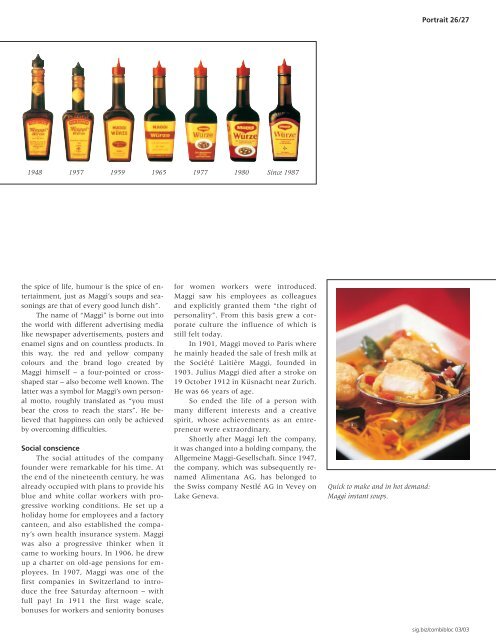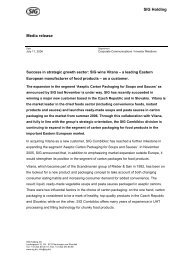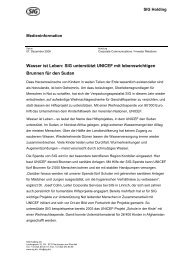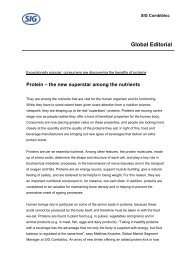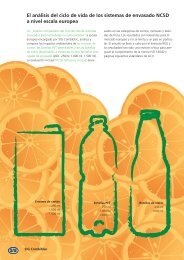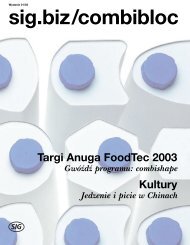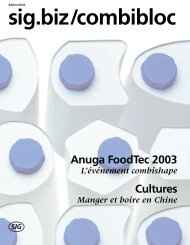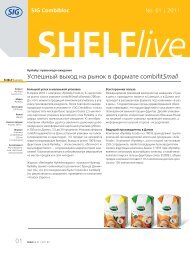You also want an ePaper? Increase the reach of your titles
YUMPU automatically turns print PDFs into web optimized ePapers that Google loves.
1948 1957 1959 1965 1977 1980 Since 1987<br />
the spice of life, humour is the spice of entertainment,<br />
just as Maggi’s soups and seasonings<br />
are that of every good lunch dish”.<br />
The name of “Maggi” is borne out into<br />
the world with different advertising media<br />
like newspaper advertisements, posters and<br />
enamel <strong>sig</strong>ns and on countless products. In<br />
this way, the red and yellow company<br />
colours and the brand logo created by<br />
Maggi himself – a four-pointed or crossshaped<br />
star – also become well known. The<br />
latter was a symbol for Maggi’s own personal<br />
motto, roughly translated as “you must<br />
bear the cross to reach the stars”. He believed<br />
that happiness can only be achieved<br />
by overcoming difficulties.<br />
Social conscience<br />
The social attitudes of the company<br />
founder were remarkable for his time. At<br />
the end of the nineteenth century, he was<br />
already occupied with plans to provide his<br />
blue and white collar workers with progressive<br />
working conditions. He set up a<br />
holiday home for employees and a factory<br />
canteen, and also established the company’s<br />
own health insurance system. Maggi<br />
was also a progressive thinker when it<br />
came to working hours. In 1906, he drew<br />
up a charter on old-age pensions for employees.<br />
In 1907, Maggi was one of the<br />
first companies in Switzerland to introduce<br />
the free Saturday afternoon – with<br />
full pay! In 1911 the first wage scale,<br />
bonuses for workers and seniority bonuses<br />
for women workers were introduced.<br />
Maggi saw his employees as colleagues<br />
and explicitly granted them “the right of<br />
personality”. From this basis grew a corporate<br />
culture the influence of which is<br />
still felt today.<br />
In 1901, Maggi moved to Paris where<br />
he mainly headed the sale of fresh milk at<br />
the Société Laitière Maggi, founded in<br />
1903. Julius Maggi died after a stroke on<br />
19 October 1912 in Küsnacht near Zurich.<br />
He was 66 years of age.<br />
So ended the life of a person with<br />
many different interests and a creative<br />
spirit, whose achievements as an entrepreneur<br />
were extraordinary.<br />
Shortly after Maggi left the company,<br />
it was changed into a holding company, the<br />
Allgemeine Maggi-Gesellschaft. Since 1947,<br />
the company, which was subsequently renamed<br />
Alimentana AG, has belonged to<br />
the Swiss company Nestlé AG in Vevey on<br />
Lake Geneva.<br />
Quick to make and in hot demand:<br />
Maggi instant soups.<br />
Portrait 26/27<br />
<strong>sig</strong>.<strong>biz</strong>/<strong>combibloc</strong> 03/03


